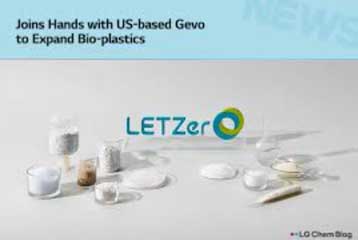Green tie-ups: Gevo/LG Chem extend biopropylene production deal; BASF ties up with Brazilian firm to develop macaúba oil

US-based Gevo Inc. and South Korean chemical firm LG Chem Ltd are extending their joint development agreement that will enable LG Chem to assess existing assets for deploying Gevo’s ethanol-to-olefins (ETO) technology while accelerating commercialisation activities, considering project scale and end-product markets.
“Gevo’s partnership with LG Chem is a great example of how we intend to accelerate development and commercialisation of our patented ETO technology to enable renewable chemicals with our world-class partner,” said Gevo’s Chief Carbon and Innovation Officer, Dr. Paul Bloom. “Our ethanol-to-olefin process holds immense promise to decarbonise a substantial portion of the market for propylene, and LG Chem is starting commercial activities ahead of the timeline we originally planned.”
Gevo’s patented ETO technology can target carbon-neutral or carbon-negative drop-in replacements for traditional petroleum-based building blocks. These are core olefins, that can be used for renewable fuels and chemicals, including sustainable aviation fuel and bio-propylene. ETO technology is just one of multiple patented technologies that Gevo is bringing to bear on the challenges of developing cost-effective bio-based renewable fuels and chemicals.
“LG Chem is committed to scaling pathways to sustainable products, and leveraging partnerships is a proven way to gain access to proprietary technologies and share ours,” said Dong-hyun Cho, Vice President/Head of LG Chem’s Petrochemicals R&D. “Our joint development agreement with Gevo is already helping LG Chem to shape sustainable and eco-friendly future business strategies.”
Because it can replace fossil-based products as a renewable raw material for various plastic products, bio-propylene is expected to play a pivotal role in the rapid growth of the bioplastic market and circular economy. Once commercialisation is achieved, bio-propylene could be used as a drop-in replacement for use in a range of products from auto parts to flooring to diapers to replace petroleum products with bio-based materials with a low or negative carbon footprint.

In other news, German chemical firm BASF and Brazil’s INOCAS S.A. (Innovative Oil and Carbon Solutions) signed a long-term supplier finance agreement, including offtake of Macaúba kernel oil and Macaúba pulp oil, an R&D project and options to acquire equity shares in INOCAS in future.
The partnership includes financing of INOCAS’ plans to significantly expand the Macaúba oil production in Brazil on an industrial scale, strengthening the country’s position in the bioeconomy.
Macaúba (Acrocomia aculeata) is a native tree in Brazil and is adapted to semi-arid conditions and poor soils. Fruits can be processed into pulp oil, kernel oil and residual biomass.
Since 2015, INOCAS has developed, implemented and refined an innovative model to cultivate Macaúba trees on degraded pastureland, and to improve soil quality and productivity. Based on its strong intellectual property and experience, INOCAS aims to plant at least 50,000 ha of Macaúba in partnership with smallholder farmers by 2030.
INOCAS will supply BASF with both kernel and pulp oil. BASF will use the Macaúba kernel oil from INOCAS in its Personal and Home Care portfolio in Brazil and Europe. Commercial pilot volumes will be available in 2025.
The pulp oil can be used in the process of obtaining bio-naphtha, which then can be converted into polymers, solvents, detergents, lubricants, synthetic fibres, fuels and other products.
Regular Macaúba pulp oil offtake for use as an alternative feedstock to substitute fossil resources will start in 2027. Using Macaúba pulp oil in its bio-naphtha pool and for its mass-balance portfolio will enable BASF to offer more products based on renewable raw materials and with a lower product carbon footprint (PCF) to its customers.
“After our ten-year development path, the strategic partnership with BASF will allow us now to scale up our activities rapidly, generating significant positive social, environmental and climate impacts, by increasing the productivity of degraded farmlands, expanding habitat for native fauna and contributing to climate change mitigation," said Johannes Zimpel, CEO of INOCAS.
(PRA)SUBSCRIBE to Get the Latest Updates from PRA Click Here»








